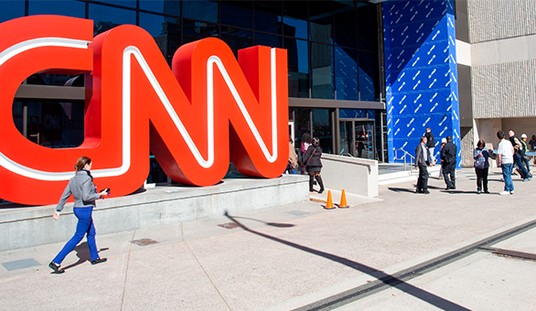
The Conservative Review’s Daniel Horowitz wrote a fascinating article comparing America’s efforts to combat the Taliban in Afghanistan to the measures we are taking to solve the current crisis at our southern border. He points out that, as of 2018, “the Taliban controlled or contested 46 percent of the districts in Afghanistan’s civil war.” In Mexico, a new government map indicates that the drug cartels control an even greater proportion of the country. Thus, Horowitz suggests the idea of approaching the immigration crisis as we would a military crisis.
He discusses a map, prepared by the government of Mexican President Andrés Manuel López Obrador (AMLO), which shows just how powerful the drug cartels in the country have become. According to the map:
80 percent of the country’s 266 districts recently targeted for enforcement by the Mexican National Guard in a new counter-cartel operation are either controlled (57.5 percent) or disputed (23.3 percent) by the cartels. “Only 53 (19.92 percent) enjoy a low level of violence, which means that control is exercised by the authorities,” reported Contralínea on May 4, citing the data on the color-coded map.

https://www.contralinea.com.mx/archivo-revista/2019/05/04/mapa-el-despliegue-militar-de-la-guardia-nacional-en-266-coordinaciones/
Horowitz believes “Mexico looks awfully similar to Afghanistan in terms of how much is controlled by insurgent groups. The map of Mexico shows the districts in red fully controlled by the cartels, the ones in yellow in dispute, and the ones in green in control of the Mexican government. They all represent priority enforcement areas for a new Mexican National Guard operation against the cartels proposed by the AMLO regime.”
He asks, “What if you were told that 80 percent of Mexico’s territory is controlled by dangerous cartels, including all of the key smuggling routes at our border, and that the cartels are orchestrating all of the illegal immigration into our territory and bringing their members back and forth across our own border?”
Retired captain of Texas’ Department of Public Safety Intelligence and Counterterrorism Division Jaeson Jones explains that “the priority areas color-coded on the map are mainly the areas where people live, and the ones left out are simply not a priority, not because the cartels don’t control most of those areas, but because there is little infrastructure or population in those areas.”
For example, the areas color-coded at the border are all the cities where people live, such as Tijuana, Mexicali, San Luis, Nogales, Juarez, Piedras Negras, Loredo, Miguel Alimen, and Reynosa (going west to east). And notice how every one of them is controlled by the cartels. All of the major smuggling areas leaning into California, Nogales, Arizona, El Paso, Texas, and the Rio Grande Valley of Texas are fully controlled by the cartels. The other areas are deserts with few people and no infrastructure, so they weren’t a priority for the Mexican government’s campaign, but they still affect our security because the cartels are sending large flows of migrants in areas like Antelope Wells, New Mexico, which are absolutely controlled by Sinaloa.
Horowitz’ point is that the drug cartels in Mexico control a greater portion of the country than do the Taliban in Afghanistan. And if the U.S. is willing to devote such vast resources to combat terrorism in a country so far away from us, why don’t we treat the problem in Mexico in the same way?
The government of Mexico has little influence over the drug cartels which have become organized, sophisticated and powerful.
They are international organizations that are engaged in endless criminality, most prominently human smuggling, but they seek to control territory and terrorize populations as well. Mexican drug cartels seek to replace local governments by imposing their own law. The Mexican cartel culture is similar to the ideology of ISIS and al Qaeda in the sense that they seek “to intimidate or coerce a civilian population; (ii) to influence the policy of a government by intimidation or coercion; or (iii) or to effect the conduct of a government by mass destruction, assassination, or kidnapping,” which is the definition of international terrorism defined under 18 U.S.C. § 2331.
Several months ago, Reps. Chip Roy (R-TX) and Mark Green (R-TN) proposed that the Mexican cartels be designated as terrorist organizations. If President Trump were to take such a course of action, Horowitz says that it “would open up new resources to target the cartels and to treat all of our border policies in a much different light than simply a domestic immigration problem. Yet the State Department continues to balk.” He argues:
So why do we not have Special Operations Command engaged in protecting our border from the cartels? Unlike the Taliban, cartel operatives come over our border all the time. Why do the Department of Homeland Security, the Department of Defense, and the State Department refuse to recognize the border issue as a military problem and agree to target the cartels as terrorists?
If the Taliban were orchestrating a flow of mass migration across parts of Afghani-controlled territory, strategically shutting down our security, and profiting from it, we would instantly take military action. When Mexican cartels are placing our own country in mortal danger, why is that not reason enough to treat this is a military threat instead of an immigration issue?
What is amazing is that Border Patrol and the National Guard are ordered not to engage the cartels and armed smugglers at all and cannot nab any of them even a few feet over our border for concern of violating Mexico’s sovereignty. We won’t even fight back when they detain and disarm our regular military units on our own side of the river. Yet, we now see that the Mexican government itself admits it has no sovereignty over that area. Why should we allow our sovereignty to be trampled by cartel figures going back and forth with impunity when fighting them won’t even violate Mexican sovereignty and will actually help it?
I agree with Horowitz. The situation has deteriorated so significantly and continues to worsen by the month. Although this is an excellent idea, Democrats would certainly oppose it for the very same reasons they’ve opposed all of President Trump’s proposed remedies. The border crisis benefits their party. For them, the more illegals, the better.
Perhaps, if Trump wins reelection, and the Democrats are handed an unmitigated defeat in 2020, Republicans will find themselves back in the driver’s seat. Hopefully, Democrats will frighten voters away with their sharp left turn. If not, then America will have an existential problem.













Join the conversation as a VIP Member